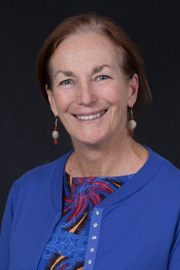The largest study in Australia into the treatment of juvenile arthritis may pave the way for a unique approach to care for those with the disabling condition and dramatically improve outcomes.
The Medical Research Future Fund will invest $2.5 million in the A3BC for Kids project which will involve researchers from the Kolling Institute and the University of Sydney in collaboration with the Australian Paediatric Rheumatology Group.
Kolling researcher and RNSH Head of Rheumatology Professor Lyn March said the centrepiece of the project, a large-scale clinical trial represents an important step towards improved care and more efficient use of medicines.
“Juvenile idiopathic arthritis affects over two million children worldwide. It is the most common chronic inflammatory musculoskeletal condition in children, and can lead to blindness and life-long disability,” she said.
“The condition is more common in girls than boys and may affect a child’s bone development and overall growth. Sadly, there is no known cause or cure.”
Current treatments involve the use of disease modifying and biologic medications which target particular immune pathways.
Professor March said these medications help, but they come with risks as they dampen the immune system, leaving some children vulnerable to infection, which can be very serious.
“International clinical and research experts agree we need to use these medications more effectively, but there is no high-quality data indicating when or how to take children off these drugs when their condition is under control,” she said.
The CHAMPION clinical trial will recruit more than 300 children from every major paediatric rheumatology treatment centre across Australia. It will involve tapering the medications to determine who can come off these drugs and how best to withdraw them once the disease is controlled.
A broad range of biological, environmental and health information will be collected from participants throughout the study. These data and biospecimens will form part of the Australian Arthritis and Autoimmune Biobank Collaborative (A3BC) biobank-registry collection.
Paediatric rheumatologist Professor Davinder Singh-Grewal from the University of Sydney said this body of work will pave the way for the development of new living treatment guidelines and clinical decision support tools to truly personalise medicine for the individual.
“This could be a global game changer for the management of children living with juvenile idiopathic arthritis, improving health outcomes and reducing uncertainty for clinicians, patients and their families,” he said.
For the first time, researchers led by the Kolling Institute’s Dr Manasi Mittinty, will also investigate how children and their families navigate the mental health impact of juvenile idiopathic arthritis. This research will assess coping mechanisms, treatment responses and children’s well-being.
Researchers are excited to launch the project and begin work with the wealth of partners, including the Sydney Children’s Hospitals Network, Arthritis Australia, Musculoskeletal Australia, Juvenile Arthritis Foundation Australia, CLEARbridge Foundation, Dragon Claw, Murdoch Children’s Research Institute, Arthritis & Osteoporosis Western Australia, the Australian Rheumatology Association, NSW Health Statewide Biobank, ANZMUSC CRE Living Guidelines team, and the A3BC NHMRC CRE Better Outcomes for Inflammatory Arthritis collaborators and patient partners advisory group.
Exciting job opportunities
A range of great employment and research opportunities, including PhD scholarships, will be available through the A3BC grants program. For more information, please contact info@a3bc.org.au
